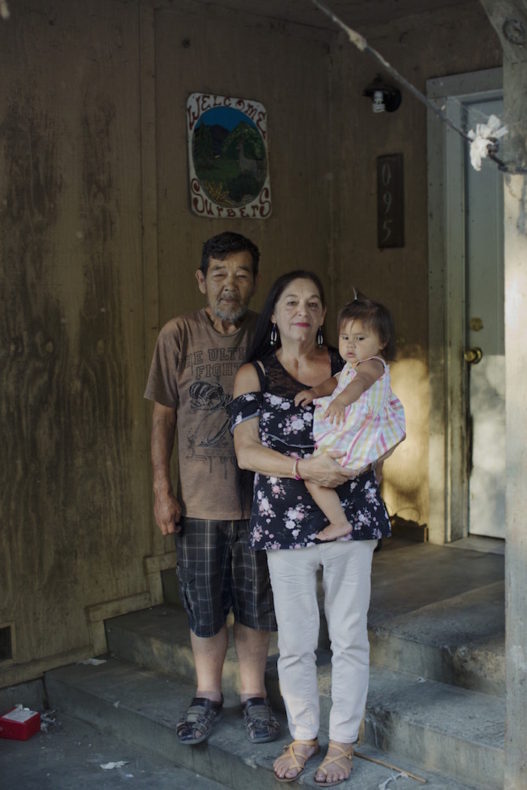
I’ve already written for LWON once about the power outages that swept California this fall. Soon after I posted that piece, however, I heard from a family that lost power in the midst of a medical crisis, and wanted to share their story.
I met this family in 2018, while reporting a story for the Washington Post. My goal for the story was to illustrate how a quiet change to California’s health care policy left two brothers-in-law – Gordon Surber and Mark Hailey — in vastly different worlds in terms of healthcare.
Gordon and Mark were neighbors on the Hoopa Valley Reservation in rural Humboldt County, California. Both men had chronic obstructive pulmonary disorder (COPD) a terminal lung condition that slowly whittles away lung capacity. Because of a recent law covering palliative care for a subset of people with MediCal, California’s Medicaid program, Mark was able to get palliative care– a suite of services including specialized pain control and visits from a nurse, chaplain and social worker.
Gordon, who died in November 2019, could not get palliative care covered by his Medicare policy or private insurance. Without palliative care, his wife Judy was left to care for Gordon, three grandkids and her mother largely unsupported, although the company that provides Mark’s care, ResolutionCare, stepped in to provide many services for free.
When the Washington Post story went to print, in December 2018, Gordon was in and out of the emergency room, each trip requiring an hour and a half-long drive each way through a windy mountain pass. It seemed unlikely he’d live much longer, but he made it through nearly another year, helping Judy take care of their three grandkids.
By fall of 2019, Gordon’s lung capacity had diminished to the point that he needed a continuous supply of oxygen. When PG&E shut the power off in October, there were no spare tanks in the house, Judy says. The home machine that delivered oxygen had to be plugged into an outlet, but it kept turning off when connected to their small generator. Someone brought a bigger generator, but that machine burnt out, Judy says. Ultimately they had to use his brother-in-law’s machine, as Mark’s health has improved since he started palliative care.
I called a company that supplies oxygen in Humboldt County, Broadway Medical, to ask how they handled the outages. The first outage came with only a few hours of warning, they told me. Although the company says none of its several thousand customers had emergencies, it also lost its internet connection when the power went out, including access to its electronic records. Unable to conduct business as usual, they sent most of their staff home.
During an outage, Broadway can still transfer oxygen from large canisters to smaller, more portable ones, and deliver them by truck, they told me. Their own supply is limited, however, by that of a separate facility that converts liquid oxygen into concentrated air. That facility can only make it so far on a generator, and when it runs out, Broadway can’t fill tanks. Things can start to go bad with in a day or two, the company’s operations manager told me: “If you go beyond 24 hours, that’s when you start to see real problems.”
Although she knows Gordon was living on borrowed time during his last weeks, Judy thinks the outages made things worse. He was so stressed by the prospect of running out of oxygen that he kept turning down the dial on the tanks whenever she left the room, she says. Every time his blood oxygen levels dropped too low he lost a bit of function, she says: at one point he had a seizure, then he couldn’t speak or swallow. “Every time something like that happened he never got back to how he was before,” she says.
Although my story for the Post was focused on health policy, I always wanted to write more about Judy, who has carried such a heavy caregiving burden — taking care of Gordon, her mother, and grandkids — while simultanously working as a medical grant writer for the Hoopa tribe and pursuing her own creative work.* It seems monstrously unfair that the outages struck during her final months with Gordon, her partner of more than 40 years. “Some people never have what we had, never know that unconditional, soul mate, best-friend type of love,” she wrote after he died. “I’ll love him forever, miss him every day and treasure what we had until the day that I join him.”
*One of the things that Judy and I connected over, early on, is that she also is a writer. She has published a novel, Reservation High, and is now working on her second book.
Thank you, Emily.